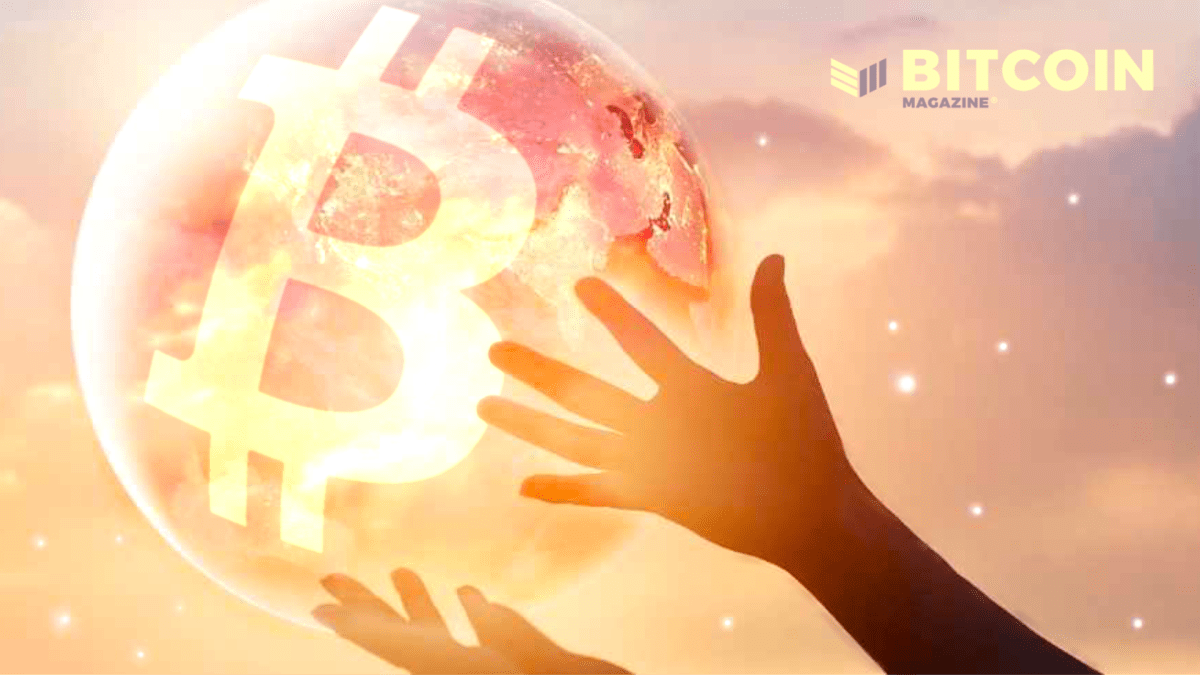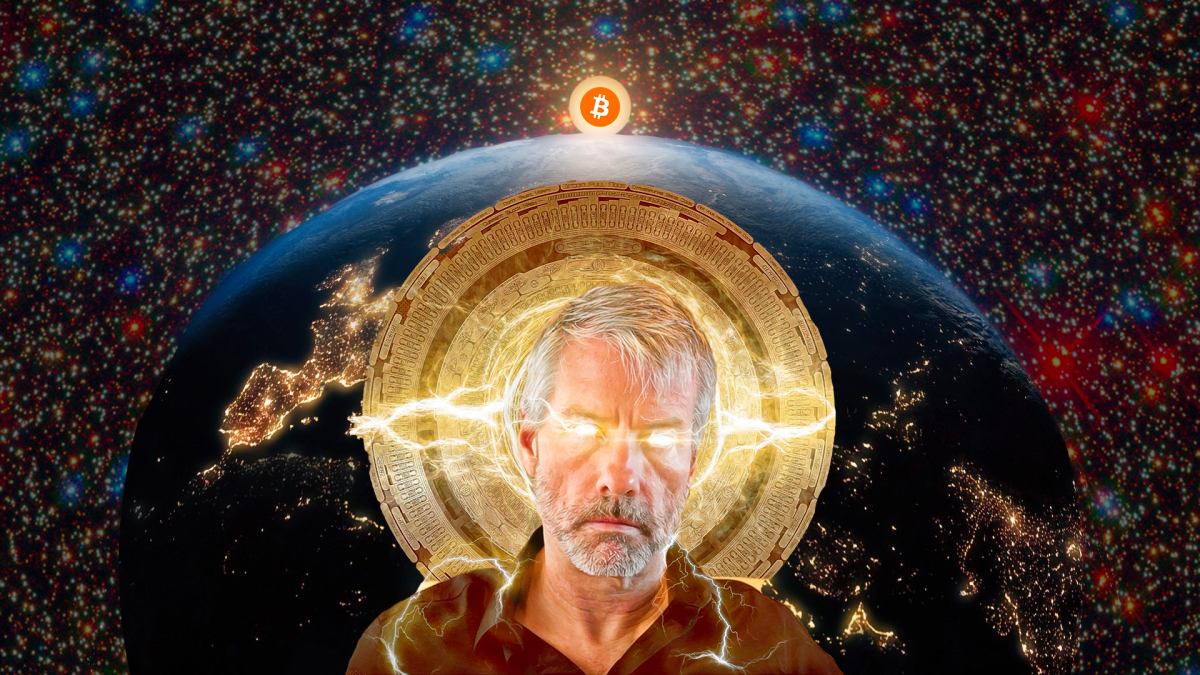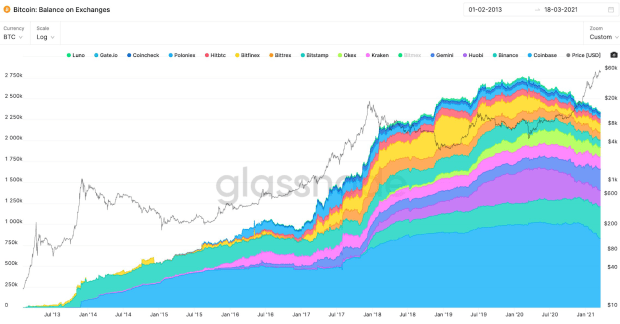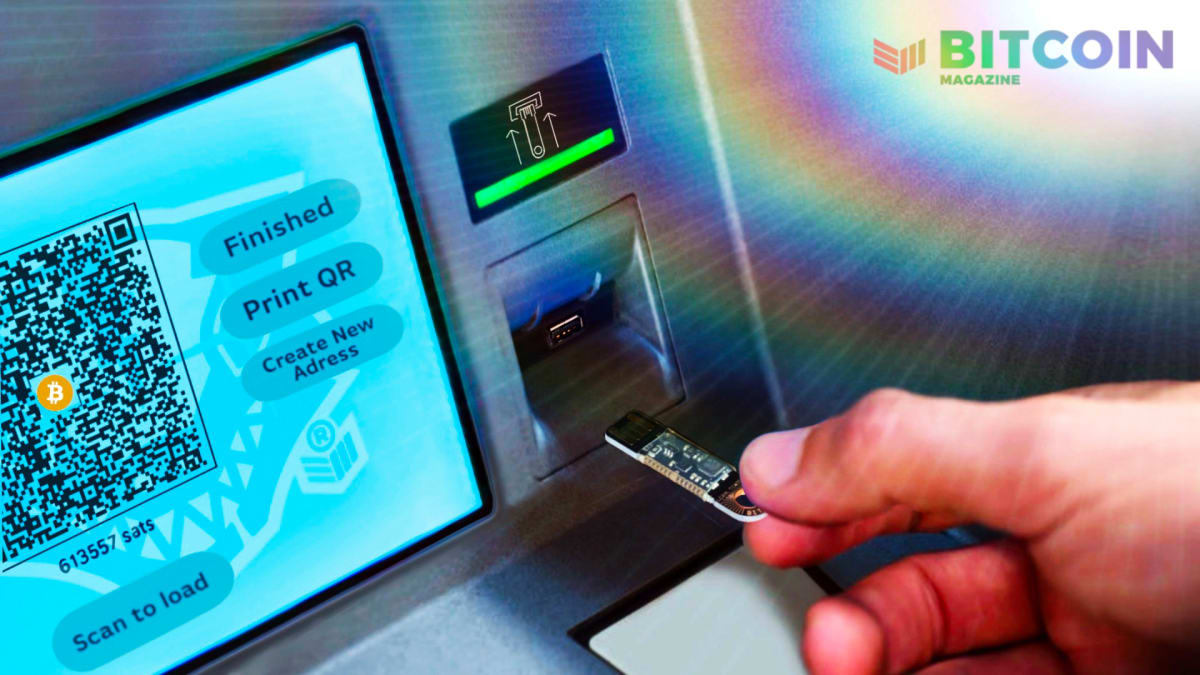The Bear Market Is The Time To Invest In Bitcoin
The people who are either building businesses, investing or learning about Bitcoin are the people who are going to be most successful in the coming cycle.
This is a transcribed excerpt of the “Bitcoin Magazine Podcast,” hosted by P and Q. In this episode, they are joined by Vijay Boyapati to talk about the “Bullish Case For Bitcoin” and how a bear market is where true conviction pays off.
Watch This Episode On YouTube Or Rumble
Listen To The Episode Here:
- Apple
- Spotify
- Libsyn
Vijay Boyapati: I think we’re in a bear market. I think I called the bear market. I think I was a little bit early, but I think I called it somewhere in June or July. I thought the bear market was starting. I think it’s probably correct to say it started a little bit later in 2021.
I think what we’re seeing is a compounding of both Bitcoin’s natural cycle, which we’ve seen with these bear markets before with the macroeconomic picture. That explains why this bear market feels as painful as it does. I don’t really think this is — it doesn’t feel that long.
I’ve been observing Bitcoin since 2011. The longest bear market in my memory was the one from 2013 until the beginning of 2017. I thought that was the most painful and is still the most painful bitcoin bear market because it really did feel like, “Wow, this thing might not come back.” It just felt like crickets during the bear market. There was no interest in Bitcoin. Some of the big voices in the community had rage quit. Mike Hearn was a very well respected developer at the time and he fully rage quit. He wrote a piece in the New York Times like, “This thing is dead. I’m not interested in it. I’m out.”
There was very little interest anywhere. People weren’t talking about Bitcoin; it wasn’t being written about. That was a really tough time for people who believed in Bitcoin. I think this is actually very different. I think Bitcoin is now fully established as a macro asset. The price has dropped, yeah OK. It’s down to 20,000, but if someone had told you three or four years ago that bitcoin is gonna crash to $19,000/$20,000, you’d be like, “Whoa! That’s amazing! We’ve made it!”
This illustrates one of the aspects of money that people don’t really understand, which is path dependence. You can’t value money based on its cash flow because gold and bitcoin are monetary assets; they don’t produce cash flow. They get valued by a market process of people trying to determine — it’s a game-theoretic process — is this better money than all the other monies that are out there? Is it better than gold? Is it better than dollars? Is it better than silver? Is it better than Ethereum or all the competitors that are out there? That process works in these cycles that we’ve seen where people get really enthusiastic, and then run out of steam and then you have a crash. The point I’m trying to make about monetary assets is that they don’t have cash flow, so you have to measure their worth as a monetary asset against other competitors and along the attributes that make for a good money.
What are those attributes? They are things like visibility, portability, transmissibility — how easy is it to transmit — and most importantly, scarcity. Along this one critical attribute that all monies need, bitcoin is the best form of money that’s ever existed. This hasn’t changed. This fundamental aspect of what makes bitcoin good — or I think the best — money hasn’t changed. It’s just the market goes through these cycles of people trying to understand what it is and people getting over excited and then losing hope.
Each one of these cycles is defined by a group of people. In the first cycle, the group of people was very small. There were only people who could understand bitcoin: cypherpunks, computer scientists and maybe some hardcore libertarians. It was a very small circle of people, but each cycle that circle gets bigger and bigger and so we have gone through a cycle where we actually brought in a lot of retail investors, but there’s many more retail investors. There’s many more institutions. There’s many more nation states out there, and a lot of them got a taste of bitcoin. They may have given up and said, “Oh, this thing has failed,” but maybe they bought a little bit. Maybe they bought say, 1% of their portfolio, or maybe even $100 and they gave up on bitcoin, but those people are primed to come back in the next cycle.
I’ll give you one example of this: Stanley Druckenmiller is a very famous macro investor billionaire. [He’s] very successful over a very long period of time, investing in making macro bets. He owned bitcoin during this last cycle, and very recently I heard him say that he doesn’t own any bitcoin. Now that sounds bad: He’s given up on bitcoin. He has been mentally captured. He’s always going to pay attention to the price of bitcoin, and when bitcoin starts — as it always does in every cycle — slowly but surely coming back, he will be paying attention. He’ll be like, “Oh, it hasn’t died. It’s been stuck around $20,000,” or whatever it is, wherever it finds its plateau. “It’s been stuck around that level for a long time. It hasn’t gone away and it looks like it’s creeping up.” Now it’s $23,000, $24,000, $25,000, maybe $30,000. People like him will come back because they’ve been exposed to bitcoin, they’ve been mentally captured. They’ve had enough touch points where they’ve heard about it enough or they’ve invested a little bit and they’re gonna come back.
This is the same thing that happens every cycle. The same thing happened back in 2017 where a bunch of people got burned when they bought bitcoin at $19,000 or $20,000 and it dropped to $3,000 and they’re like, “Oh. Why did I do that? It was a terrible investment,” but then they were paying attention in the current cycle, which is finished, and they came back in because they noticed bitcoin. They knew about it; they knew how to invest. They were primed to put more capital in. So each cycle, the [amount of] people who are primed to come in is much bigger. The number of people who are ready to come in the next cycle, especially institutions and high networth individuals is gigantic. Some of the things that we saw, I think people got overly excited. They saw Michael Saylor coming in, they saw El Salvador and they thought this cycle is the cycle when we’re gonna have every high networth individual, every corporation, every nation state; they’re all gonna pile in.
I actually think what you got was just a taste of what we’ll see in the next cycle. I was really surprised to see El Salvador come in. I didn’t think a nation state would do what El Salvador did for a few cycles into the future and so what happened is what I expected, which is that most nation states will stand back and not do anything, but now I think many more of them are gonna be primed in the coming cycles to come in and do what El Salvador did. So I think there are many reasons to be bullish about bitcoin. None of the fundamentals have changed, none of the attributes that make bitcoin superior to all its competitors, none of that has changed.
The number of people who have been exposed to Bitcoin is much, much larger. What you have, if you’ve been around for a while, or you listen to people who have been around for a while is an incredible opportunity. The best time — if you are one of those people around in a bear market — to invest is right now. The best time to get exposure to learn more about Bitcoin, to do something for Bitcoin, to go and build a business in the Bitcoin space is right now. The people who are around now who are either building businesses, investing or learning about Bitcoin, they are the people who are gonna be most successful in the coming cycle.
What you don’t want to be and what always disappoints me is the people, friends and family I speak to, they only get interested right at the end of the cycle. It’s the same every single cycle; I’ve been through four of them now. People come to me at the end of the cycle and they’re like, “Tell me about Bitcoin. How do I invest in bitcoin?”
I’m like, “I’m really glad you’re interested in Bitcoin. Just be careful because Bitcoin is cyclical; it goes through cycles. Learn about investing in bitcoin; put a small percentage of your portfolio in there.” I usually think about it as they’re not really ready. They’re gonna come back the cycle after and they’re gonna get a little bit burned. I don’t want them to get too burned so they never come back. But if you are around now, if you are listening, there’s a huge opportunity. They don’t come around that often; it’s once every four years.
Eventually, these cycles are gonna stop when Bitcoin gets to complete, full adoption. And I think we’re only maybe three or four cycles away from that. So I am really excited. I think this is the best time to be interested in Bitcoin. None of the fundamentals have changed, so get out there and learn about it.
Get out there and invest. Get out there and build it. Now is the time.









